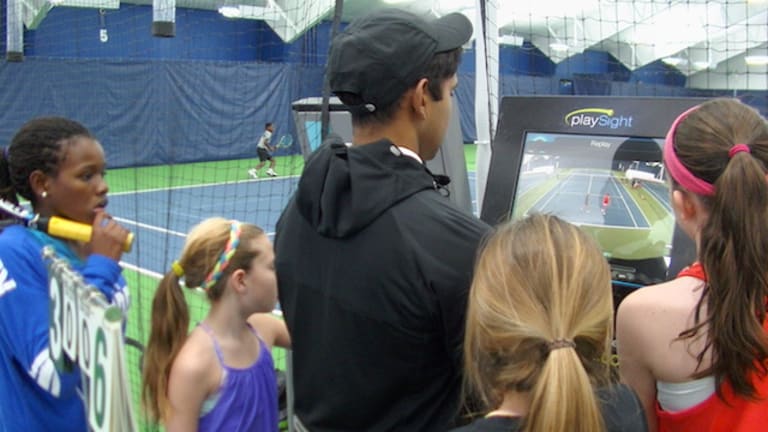It’s been more than 35 years since Ronald Reagan stated, during his first inaugural address, “Those who say that we’re in a time when there are no heroes, they just don’t know where to look.” We discovered heroes in every state, starting with the determined 69-year-old who won a match at an ITF Pro Circuit event earlier this year in the Alabama town of Pelham, and culminating with the coach who has overcome multiple sclerosis to build a winning program at the University of Wyoming. Their compelling stories of courage, perseverance and achievement demonstrate that the message delivered by our 40th President rings as true today as it did then.
Imagine a world where cheating no longer existed. There would be no more wasted time, dramatic fights, bouts of tears or ruined friendships. That utopia is something that PlaySight, a sports tech company based out of Tenafly, NJ, is trying to achieve with its cutting-edge technology.
Equipped with the ability to call lines, PlaySight has naturally ventured into the ethical realm of boosting fair play by allowing players to challenge calls at PlayFair tournaments.
Just as professionals use Hawk-Eye for challenges, now anyone can ask to see a replay of a shot during a match on a PlaySight-equipped court. With cameras placed around the court, the PlaySight system detects the ball’s pace, depth and spin, allowing it to determine where the shot landed. From that information, a call can be confirmed or the point can be replayed.
“PlayFair is just a good way for people to not have to worry about cheating,” says Jeff Angus, the marketing manager for PlaySight, “and not have to worry about calling lines because there’s a visual backup for it.”
The technology can make playing the game easier and more fun for everyone. PlaySight has tested out the PlayFair system at two non-sanctioned tournaments, with the hopes of bringing the system to sanctioned USTA events and college matches in the future.

